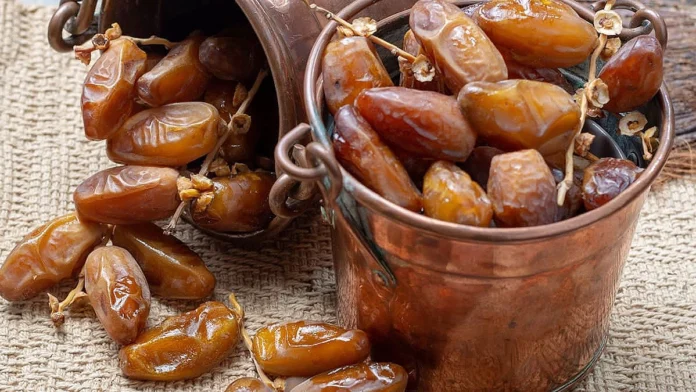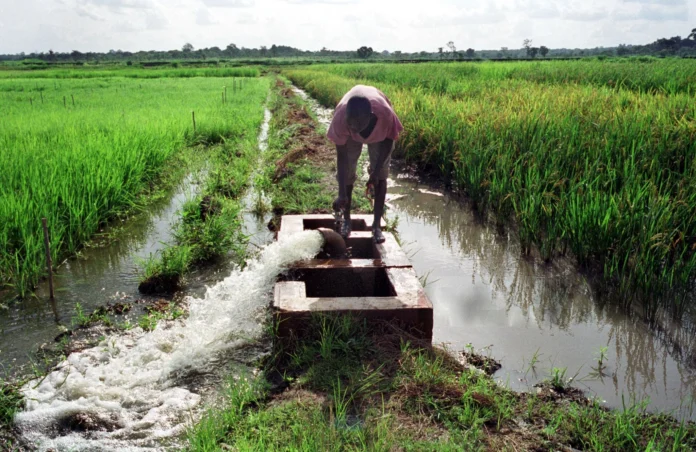Arabfields, Sophia Daly, Financial Analyst specialized in Agriculture and Futures Markets — In a country where rice is the undisputed king of the plate, appearing in almost every meal from thiéboudienne to plain white rice with sauce, the Senegalese government has just taken a decisive and long-awaited step. On November 17, 2025, the Ministry of Industry and Commerce officially signed a groundbreaking protocol agreement with all stakeholders in the rice value chain: producers, processors, importers, wholesalers, semi-wholesalers, and retailers. The stated goal is crystal clear: make locally produced Senegalese rice the default choice on every table and drastically slash the country’s massive rice import bill.
Under the newly signed protocol, several concrete and binding commitments have been made to ensure that local rice finally takes center stage in Senegal’s markets and on its plates.
Traders and commercial operators have pledged to purchase the entirety of the available local rice production directly at the farmgate or collection points in the main growing areas, such as the Senegal River Valley and Casamance. This direct procurement system eliminates many of the middlemen who previously depressed prices paid to farmers and guarantees producers a reliable outlet for their harvest, regardless of international price fluctuations.
Perhaps the most innovative aspect of the agreement is the introduction of a strict linkage between local purchases and import authorizations. From now on, any importer wishing to bring foreign rice into Senegal must first prove that they have bought and placed on the market a predetermined volume of domestically produced rice. In practice, this means that import licenses will only be granted once traders can demonstrate, through official receipts and traceability documents, that they have absorbed a significant share of the local harvest. This mechanism effectively transforms importers into de facto promoters of Senegalese rice, forcing them to prioritize national production before turning to cheaper Asian supplies.
A fixed reference price of 350 CFA francs per kilogram for good-quality white local rice has also been established. This price, considered remunerative for farmers while remaining competitive for consumers, will serve as the benchmark for all transactions under the protocol. The government has indicated that it stands ready to intervene through buffer stocks or temporary subsidies if production costs rise sharply, ensuring the price remains viable for producers without burdening households.
Finally, all signatories, including large distribution networks, wholesalers, and semi-wholesalers, have committed to prominent in-store and market promotion of local rice varieties, with clear labeling such as “Riz du Sénégal” or “Produit Local.” Awareness campaigns financed jointly by the state and private operators will accompany the rollout to shift consumer habits, particularly in urban areas where imported brands long dominated shelves.
Taken together, these measures represent one of the most ambitious attempts in West Africa to rebalance a strategic food value chain in favor of domestic producers, using a combination of incentives, obligations, and market regulation rather than outright import bans.
The agreement is the direct outcome of firm instructions given by President Bassirou Diomaye Faye during the Council of Ministers meeting on November 5, 2025. The Head of State demanded the rapid development of a robust strategy to promote local rice and give it real added value. “We cannot continue to spend billions of CFA francs every year importing a product that we are perfectly capable of growing ourselves,” the president reportedly stressed, underlining that rice imports represent one of the largest items on Senegal’s foreign exchange expenditure.
For decades, Senegal has imported between 800,000 and 1.2 million tons of rice annually, mainly from India, Thailand, and Vietnam, often at prices that undercut local producers. Despite massive investments in irrigation schemes, high-yielding varieties, and the rehabilitation of thousands of hectares in the north and south, local rice has struggled to gain traction in urban markets, where consumers have grown accustomed to the fragrance and texture of imported brands.
This rice protocol fits perfectly into the economic nationalism agenda championed by President Faye and Prime Minister Ousmane Sonko since their landslide victory in 2024. From renegotiating fishing agreements to pushing for greater local content in extractive industries, the new administration has made self-reliance a cornerstone of its “Project for a Sovereign Senegal.”
In the agricultural sector, the results are already visible: increased budgetary allocations for mechanization, subsidized fertilizers, and the revival of large-scale irrigation projects along the Senegal River and in the Anambé basin. Production in the Valley reached record levels during the 2024-2025 season, yet much of that rice risked rotting in warehouses because of unfair competition from imports.
By tying import rights to local purchases, the government is creating a protected and predictable market for Senegalese farmers, while avoiding the political backlash that outright import bans would provoke among urban consumers and trading lobbies.
The road will not be without obstacles. Some importers and large distributors have privately voiced concerns about potential supply disruptions if local production falls short due to drought or logistical bottlenecks. Urban consumers, particularly in Dakar, may initially resist if the taste or cooking qualities of certain local varieties do not immediately match their expectations.
Enforcement will be crucial. Smuggling across porous borders and under-the-counter sales of imported rice have undermined similar initiatives in the past. The government has promised tight monitoring, including digital traceability systems and joint inspection teams, but success will depend on political will and coordination between ministries.
If this protocol succeeds, Senegal could become a blueprint for other rice-dependent African nations such as Mali, Guinea, or Côte d’Ivoire. By choosing pragmatic regulation over prohibition, Dakar is betting that market incentives and national pride can achieve what decades of subsidies alone could not.
For rural communities in Saint-Louis, Matam, Kolda, and Ziguinchor, the stakes are enormous: higher incomes, more jobs in processing and packaging, and a renewed sense of dignity for farmers who have long felt abandoned by the system.
As the 2025-2026 harvest season approaches, the message from the government is resounding: “Consume Local” is no longer just a slogan, it is now official policy backed by law, money, and political capital.
In a region increasingly vulnerable to global shocks, from the Ukraine war to climate-induced droughts, Senegal’s bold move toward rice self-sufficiency may well mark the beginning of a genuine West African agricultural renaissance. The coming months will tell whether the country has finally found the recipe to feed itself, on its own terms.












